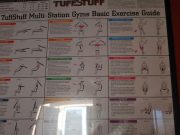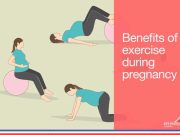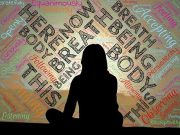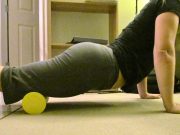In today’s fast-paced world, fatigue has become an all-too-familiar companion for many of us. Balancing work, family, and personal commitments often leaves us feeling drained and longing for more energy. If you find yourself reaching for yet another cup of coffee or struggling to keep your eyes open during the day, you’re not alone. Fortunately, there’s a simple and effective solution that doesn’t involve caffeine or drastic lifestyle changes. Daily movement, even in small doses, can be a powerful tool to combat fatigue and rejuvenate both body and mind. In this article, we will explore how incorporating movement into your daily routine can help boost your energy levels, enhance your mood, and improve your overall well-being. Whether you’re a busy professional, a stay-at-home parent, or a student juggling multiple responsibilities, these practical tips and strategies will empower you to take charge of your energy and reclaim your vitality.
Understanding the Causes of Fatigue and Its Impact on Your Life
Fatigue is a common challenge many of us face, often stemming from a variety of sources. Understanding these causes is the first step toward finding relief. Physical inactivity is a significant contributor; when the body doesn’t move enough, energy levels can plummet. Additionally, mental stress and poor sleep habits can exacerbate feelings of exhaustion, creating a vicious cycle that is hard to break. By identifying these triggers, you can start to address the root causes of your fatigue.
It’s crucial to recognize the profound impact fatigue can have on various aspects of life. It can affect your productivity, making it difficult to focus and complete tasks efficiently. Relationships may also suffer as fatigue often leads to irritability and reduced social interaction. Moreover, ongoing fatigue can contribute to more serious health issues, such as chronic stress and weakened immune function. Taking steps to combat fatigue not only improves your immediate well-being but also safeguards your long-term health.
| Common Causes of Fatigue | Impact on Life |
|---|---|
| Physical Inactivity | Decreased Energy Levels |
| Mental Stress | Reduced Focus |
| Poor Sleep Habits | Increased Irritability |
To effectively combat fatigue, consider incorporating more daily movement into your routine. This doesn’t mean you need to hit the gym for hours on end. Instead, focus on small, manageable changes like taking short walks, practicing stretching exercises, or engaging in brief home workouts. These activities can help boost your energy levels, improve your mood, and enhance your overall quality of life.

Incorporating Gentle Exercises to Rejuvenate Your Energy Levels
In our fast-paced world, it’s easy to overlook the power of gentle exercises in boosting our energy levels. Embracing daily movement doesn’t mean you need to engage in strenuous workouts; instead, consider incorporating low-impact activities that rejuvenate both body and mind.
Here are some gentle exercises that can help combat fatigue:
- Walking: A simple walk in nature can do wonders for your mood and energy. Aim for 20-30 minutes daily, and feel the invigorating effects.
- Yoga: Incorporate basic poses like Child’s Pose or Cat-Cow Stretch to release tension and stimulate circulation.
- Stretching: Regular stretching helps improve flexibility and blood flow, providing a natural energy boost.
| Exercise | Duration | Benefits |
|---|---|---|
| Walking | 20-30 mins | Enhances mood, boosts circulation |
| Yoga | 15-20 mins | Reduces stress, increases flexibility |
| Stretching | 10 mins | Improves flexibility, releases tension |
Consistency is key. Even on the busiest of days, carve out a few moments for these gentle exercises. Not only will they help combat fatigue, but they also serve as a reminder to prioritize your well-being.

Creating a Balanced Movement Routine Tailored to Your Needs
To create a movement routine that truly caters to your unique needs, it’s essential to consider your personal preferences, physical capabilities, and lifestyle. A balanced routine can be the cornerstone of managing fatigue effectively. Start by identifying the types of activities that you enjoy and feel comfortable with. This could be a mix of low-impact exercises like walking or yoga, combined with strength-building activities such as light weightlifting or resistance training.
- Assess Your Energy Levels: Pay attention to your body’s natural rhythms. Are you more energetic in the morning, or do you find a burst of energy in the evening? Tailor your routine around these peaks.
- Variety is Key: Incorporate different types of movement to keep things interesting and engage various muscle groups. This could include dancing, swimming, or even tai chi.
- Listen to Your Body: If you feel overly tired, it’s okay to take a rest day or switch to a gentler form of exercise. The goal is to feel invigorated, not exhausted.
| Activity | Duration | Intensity Level |
|---|---|---|
| Yoga | 30 minutes | Low |
| Walking | 20 minutes | Moderate |
| Resistance Training | 15 minutes | High |
Integrating a variety of activities not only helps in combating fatigue but also supports overall wellness. Make sure to stay hydrated, eat a balanced diet, and get adequate rest to complement your movement routine. Remember, the key is to maintain consistency without overexerting yourself.

Mindful Movement Practices to Enhance Overall Well-being
- Yoga: Embrace the flow of yoga to cultivate a deeper connection with your body. Whether it’s a gentle Hatha session or an invigorating Vinyasa flow, yoga can be tailored to fit your energy levels and needs. This practice not only enhances flexibility but also fosters mental clarity, helping you manage stress and fatigue more effectively.
- Qi Gong: This ancient Chinese practice involves gentle, rhythmic movements that harmonize the body’s energy flow. Qi Gong can be practiced by individuals of all fitness levels, offering a meditative movement experience that revitalizes both the mind and body. Incorporate a few minutes of Qi Gong into your daily routine to boost your energy and focus.
- Tai Chi: Often described as “meditation in motion,” Tai Chi combines slow, deliberate movements with deep breathing. This practice is excellent for reducing stress and improving balance, making it a perfect antidote to the fatigue that stems from a hectic lifestyle.
| Practice | Benefit | Duration |
|---|---|---|
| Yoga | Increases flexibility and mental clarity | 20-60 minutes |
| Qi Gong | Enhances energy flow and focus | 10-30 minutes |
| Tai Chi | Reduces stress and improves balance | 15-45 minutes |
Incorporating these mindful movement practices into your daily life can be a powerful way to combat fatigue. Consistency is key; even short, regular sessions can significantly improve your overall well-being. Listen to your body, honor its needs, and gradually build a routine that invigorates and restores your energy levels. Embrace the journey towards a more balanced and vibrant life.








































